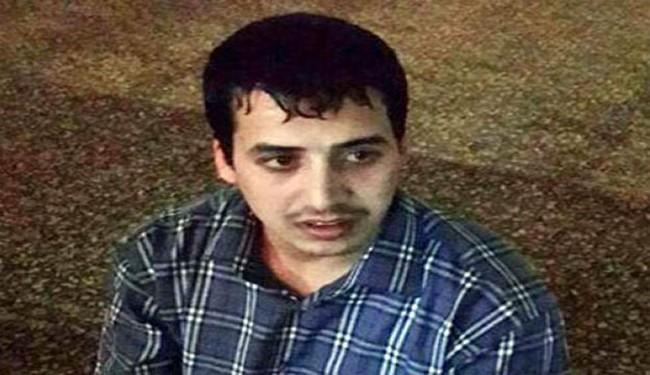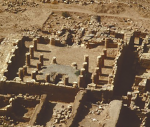You are here
Details of convictions of 15 hanged at dawn
By Rana Husseini - Mar 04,2017 - Last updated at Mar 04,2017
AMMAN — The state on Saturday executed 15 men for terror-related crimes as well as sexual assaults and murders.
The list below explains the murders and crimes committed by the defendants whose sentences were upheld by the Court of Cassation.
Terror-related cases
Five men, dubbed by the local press as the “Irbid terror cell”, were executed on Saturday after being convicted by the State Security Court (SSC) of committing terrorist acts which led to the deaths of human beings, committing terrorist acts using automatic weapons, manufacturing explosives with the intention of perpetrating terrorist acts, carrying out terrorist acts and promoting terrorist ideologies.
They were identified by officials as Ashraf Bashtawi, Fadi Bashtawi, Imad Dalki, Mohammad Dalki and Faraj Sharif.
The five men were Daesh affiliates who were planning to carry out attacks on the General Intelligence Department (GID), as well as military and civilian sites in the Kingdom.
They were among 13 people arrested in March last year, following a raid that resulted in the death of one anti-terror unit officer, seven suspects and the injury of five officers and two civilians.
The sixth man executed was Riad Abdullah, 49, who was convicted by the SSC last year of assassinating Jordanian writer Nahed Hattar in front of the Palace of Justice in the capital last September.
“Abdullah told the execution committee that he had written his final wishes in a paper and said he left it with prison officials to give to his family,” an official source who attended the executions said.
He was found guilty of carrying out subversive acts that led to the death of an individual, conducting terrorist acts that could lead to turmoil, premeditated murder and possessing an unlicensed weapon.
Hattar, who was standing trial for sharing a caricature that was considered insulting to religious beliefs and feelings, was on his way to attend a hearing, accompanied by family members, when he was assassinated in front of the courthouse in late September.
Abdullah had said in his initial statement to police that he “targeted Hattar after hearing that he posted an offensive caricature on his Facebook page and decided to kill him”, according to court papers.
The seventh individual executed was Mahmoud Masharfeh for his killing of five intelligence personnel in June in the terrorist attack on the Ain Al Basha office of the GID.
Masharfeh was found guilty by the SSC in early August of committing terrorist acts that led to the deaths of human beings and committing terrorist acts using automatic weapons.
“Masharfeh asked to perform his final prayers before being escorted to the gallows by prison officials,” the official source said.
The eighth executed was identified by officials as Ali Maqableh, who was convicted by the SSC of shooting and killing Captain Jamal Darawsheh and Corporal Usama Jarawreh while on patrol at the Samma intersection, west of Irbid, in December 2015.
“Maqableh asked the execution committee to inform his family to pay some debts he owed to several people,” according to the source who attended the executions.
Maqableh was one of three men who were convicted by the SSC in February 2016 of the killing of the two officers and for carrying out a terrorist act, while using an automatic weapon, resulting in the death of a person. The two other defendants were sentenced to serve prison time.
The ninth person executed was Muammar Jaghbir for plotting the 2003 attack on the Kingdom’s embassy in Baghdad, which killed 18 people, including a Jordanian and five Iraqi policemen, and caused financial losses of JD181,126.
The SSC found Jaghbir guilty of "conspiracy to carry out a terrorist attack that led to the death of an individual".
Jaghbir, along with Ahmad Fadel Khalayleh, better known as Abu Mussab Zarqawi, were accused of planning and participating in the suicide bombing by delivering the vehicle that was packed with explosives.
The court dropped the case against Zarqawi, former head of Al Qaeda in Iraq, following his death in a US air strike in 2006.
The two men plotted to attack Jews and foreigners in the Kingdom as well as "Jordanian interests in Iraq”, according to the charge sheet.
The 10th person executed was Nabil Jaaoura, who was convicted by the SSC in December 2006 of killing a British tourist and injuring six others at Amman’s Roman Theatre in September 2006.
Jaaoura, a blacksmith, was convicted by the military court of carrying out a terrorist attack which resulted in the death of one person and for possessing an illegal firearm.
British accountant Christopher Stokes was killed instantly from a single bullet to the heart. Five other tourists from Australia, Britain, the Netherlands and New Zealand and a police officer were also injured in the shooting incident.
Jaaoura, a father of five, carried out the attack to avenge the death of two of his brothers who were killed during the 1982 Israeli invasion of Lebanon, according to the charge sheet.
The man claimed he decided to launch his attack following the Israeli aggression against Lebanon in July of 2006.
Criminal-related cases
The 11th person hanged was a 33-year-old man who was sentenced to death in November 2009 for murdering a 60-year-old man and sexually assaulting and killing his teenage daughter, 13, in Ajloun in May 2008
Court papers said the man, who had a previous criminal record, was sitting on a hill consuming alcohol on the day of the incident when he spotted the teenage girl and decided to rape her.
He headed to her house, where he struck the father repeatedly with an axe, then found the girl, sexually assaulted and axed her to death, the court said.
The court depended on the man's confession and re-enactment of the murders, DNA evidence that linked him to the sexual assault and the victim’s mobile phone that was found in his possession.
The 12th person executed was a 52-year-old carpenter who was convicted by the Criminal Court in 2011 of raping, molesting and murdering his teenage daughter in Zarqa in May 2010.
The conviction also included 16 rape incidents and 14 counts of molestation of the 19-year-old victim by the defendant that began when his daughter turned 15.
In February 2010, the victim complained of stomach pain, so the man took her to a private doctor “after suspecting that she might be pregnant”, the court said, adding that his suspicions were confirmed, so he started to think of a way to get rid of the “unwanted foetus”.
He hit her in the stomach on several occasions in an attempt to abort the foetus but failed, and eventually decided to perform an operation on his daughter, so he bought a paper cutter and an anaesthetic. He then cut open her abdomen, and took out the female foetus, placed it in a plastic bag and threw it in the garbage.
The convict sewed the girl's stomach with a needle and thread while she screamed in pain, but she kept bleeding and eventually died, the court said.
A DNA test conducted on the foetus indicated that it belonged to the victim and that the suspect was the biological father.
The 13th person executed was a 26-year-old who was convicted by the Criminal Court of robbing and murdering Noor Awadat, a Sharia student at Al al Bayt University, stabbing her 37 times with a knife. The murder took place at a bus terminal in Zarqa Governorate, 22km northeast of Amman, on December 3, 2013.
Court papers said the man, who was employed at the National Electric Power Company, also worked as a fare collector on buses on the Mafraq-Zarqa route, the same one the victim used, for almost two years prior to the incident.
The two developed an “innocent relationship” but the man wanted to marry her. However, she liked someone else, which angered the convict and he started harassing and stalking her “and decided to take revenge”, the court said.
On the day of the murder, the man grabbed a kitchen knife and lured the victim onto a bus at 6am. He then stabbed the young woman repeatedly, took her mobile phone and fled, court papers said.
Investigators traced the phone, which led them to the man. He was arrested by police nine hours after the body was discovered, the court said. Investigators found the man's DNA under the woman’s right hand’s fingernails.
The 14th person executed was a 30-year-old man who was convicted of killing Mohammad Abu Risheh, 43, who worked at Al Bashir Hospital as a paediatric surgeon, near his home in Shafa Badran in May 2015.
The father of five daughters was fatally stabbed while standing in front of his home, by the convict, who held a grudge over the victim’s treatment of one of his daughters almost six months before the incident.
The defendant also blamed Abu Risheh for marital problems that led to his divorce and plotted to kill him, the court added.
The 15th person executed was a 33-year-old man who was convicted in 2008 of raping and murdering his eight-year-old relative in Irbid in 2006.
The court said the man and the victim were attending a wedding when the convict lured the child to a deserted area, undressed him by force and sexually assaulted him.
“The boy started crying and told the defendant he was going to inform his grandfather about what happened, so he pressed on his neck until he fell to the ground then struck him repeatedly with an iron bar until he was sure he was dead,” the court said.
The man returned home, and when he heard the victim’s family was looking for the boy, he joined them in the search, according to the court.
The court relied on DNA evidence which tied the defendant to the crime.
Related Articles
AMMAN — The State Security Court (SSC) on Thursday issued a death sentence against the gunman who killed five intelligence personnel in June
AMMAN — The Cassation Court has upheld an August State Security Court (SSC) ruling, sentencing a man to death for killing five intelligence
AMMAN — The Court of Cassation has upheld a June Criminal Court ruling sentencing a Syrian woman to six years in prison after conv

















